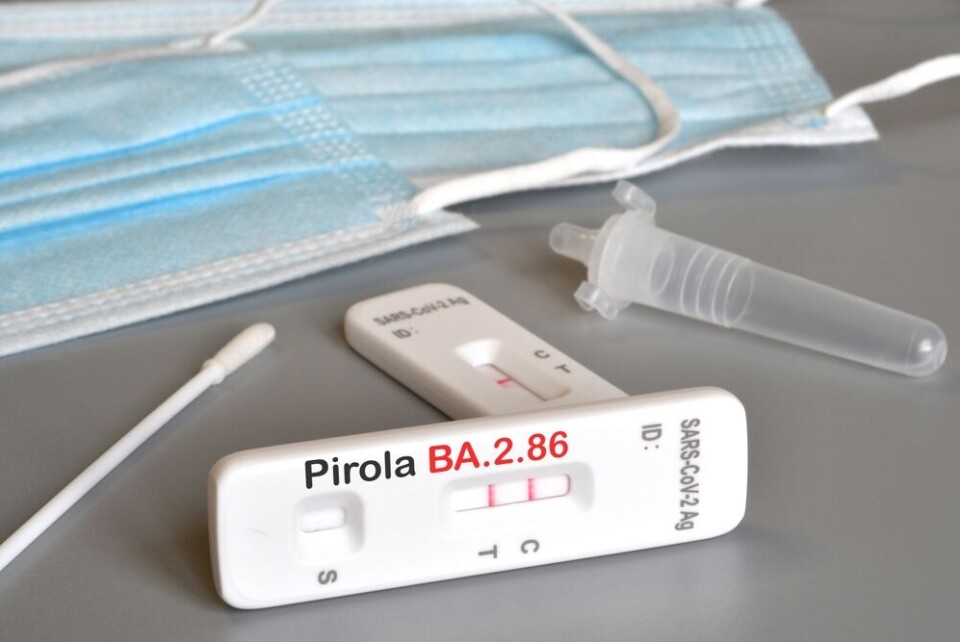-
Dates 2026: Family allowance payments and other French benefits
The payment date varies if it falls on a weekend
-
Dordogne villages suffer burglaries: How to protect your property
A series of break-ins have been reported over the Christmas period
-
‘It’s the place we are happiest’: George Clooney and family become French
‘My kids have a much better life [and] speak perfect French’, the Hollywood star says
Covid in France: What are symptoms of the new variant Pirola?
The new strain is ‘intrinsically more contagious’ than previous strains and more likely to spread in winter, experts say

A new variant of Covid-19 - dubbed Pirola - could spread rapidly in France this winter, bringing new symptoms such as eye and skin irritation, and digestive issues, experts have warned.
Pirola is a subvariant of the variant Omicron. Epidemiologist expert Professor François Balloux - director of the The London Genetics Centre - has warned that it could cause an ‘explosion’ in cases across France, although many will be asymptomatic.
Winter virus
The professor has said that cases of the virus could significantly increase in winter, in the same way as flu, bronchitis, and bronchiolitis.
“This can be explained by physical factors: Covid is an enveloped type of virus, it is not very resistant to UV rays,” said Professor Balloux to La Dépêche. “It stays in the air longer and is therefore infectious for longer when it is cold and damp.”
He added that people’s behaviour increases the risk too, with people naturally far more likely to stay indoors in autumn and winter.
Pirola - or BA.2.86 - has the “largest number of mutations” and is “more likely to mutate and spread more easily and in a more significant way”, said the president of France’s health risk committee, the Comité de veille et d’anticipation des risques sanitaires (Covars).
The variant was first detected in the country on August 31. It is now one of the variants under close surveillance due to its large number of mutations, particularly on the virus’ ‘spikes’. These are the mechanisms that the virus uses to enter healthy cells.
Yet, the most recent figures from health authority Santé publique France (November 2) suggest that Covid indicators are stabilising in mainland France, with the incidence rate (the number of cases per 100,000 people) lowest in people aged under 20, and highest among people aged 80 or over.
For the week October 23-29, the figures show that SOS Médécins consultations dropped by 0.5% week-on-week, while emergency visits and admissions to hospital remained stable.
What are the symptoms of Pirola?
Pirola causes similar symptoms to previous Covid variants, including fever, severe fatigue, headaches, and a loss of smell and/or taste.
Yet, it has been noted to cause additional symptoms to some of the previous Covid variants.
These include:
- Eye and skin irritation, including a rash on the face
- Diarrhoea
- Severe cold symptoms
The variant is also one of the most likely to be asymptomatic in many people infected. This means it is more likely to spread to vulnerable people, as asymptomatic carriers typically do not know that they have the virus.
Will Covid become a seasonal virus, like flu?
Professor Balloux has said that this is “unlikely”, although “we certainly see more cases in winter”. The specialist said that “we will only be able to see the tipping point when more time has passed”.
However, the World Health Organization (WHO) has said that such a ‘tipping point’ appears to have been reached in spring this year.
Executive Director of the WHO's Health Emergencies Programme, Dr Michael Ryan, said earlier this year: “I think we’re coming to that point, where we can look at Covid-19 in the same way that we look at seasonal influenza.
“A threat to health, a virus that will continue to kill, but a virus that is not disrupting our society or our hospital systems…and I believe that will come this year.”
Professor Balloux has admitted that “the number of cases” being seen this autumn “has been a surprise for specialists”.
Related articles
SEE: Latest figures on Covid-19 in France show cases are stabilising
Waste water in France to be monitored for Covid and other viruses
























